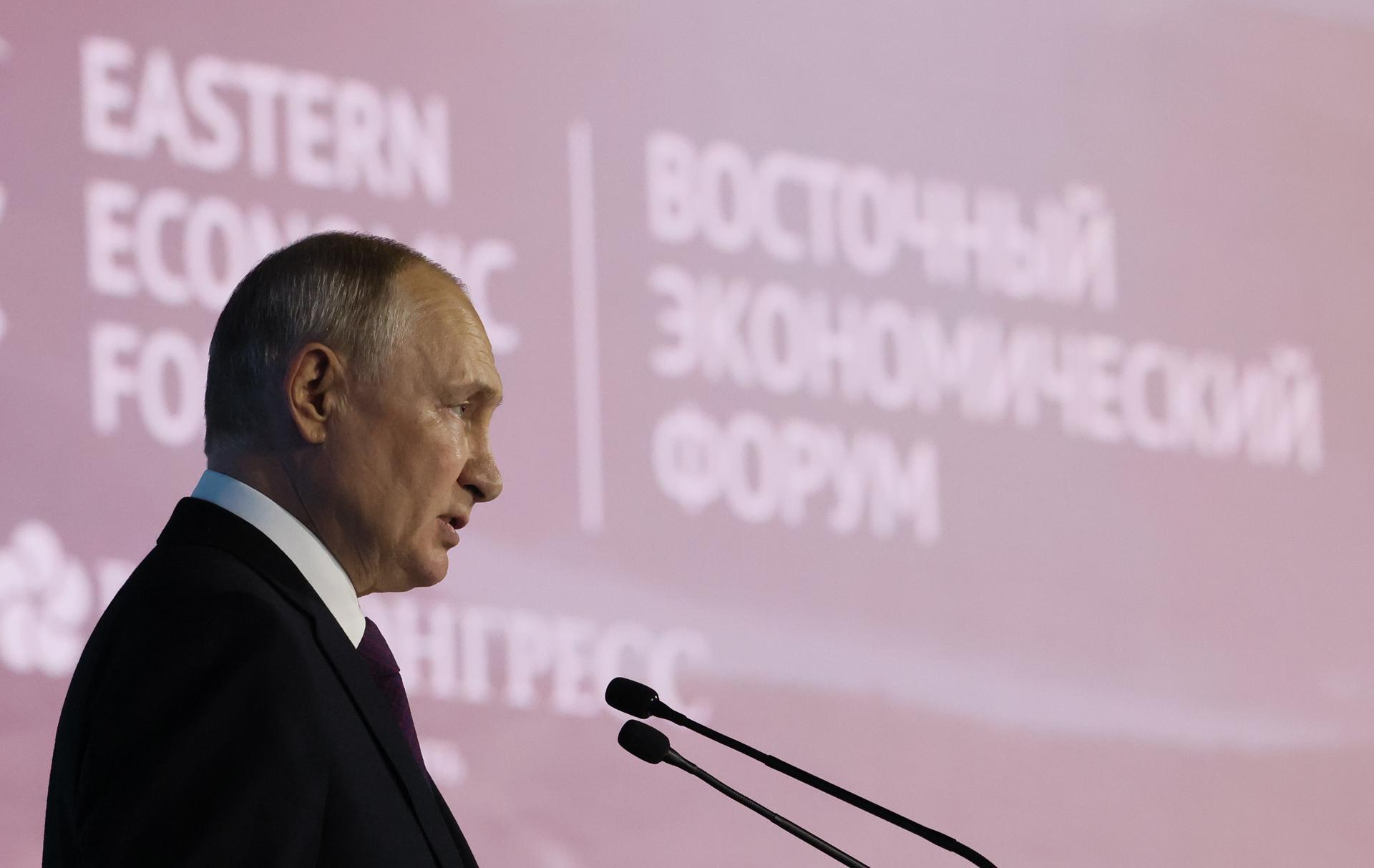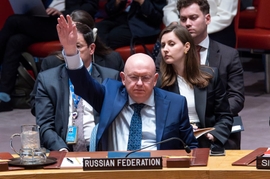The failure of Luna-25 mission will not impede Russia’s space program, but, instead, it would serve as a catalyst for further efforts in the field, President Vladimir Putin said at the Eastern Economic Forum's plenary session.
“As for landing on a site where no one has ever landed before, yes, it is a difficult job, of course, and it will be analysed accordingly, and the work will continue,” President Putin said on Tuesday.
“It is a pity, of course, that the moon landing did not take place, but that does not mean that we are going to end the program. We will keep working on it,” he added.
The President asserted that he is not disappointed with Russia's position in space exploration.
“Space exploration is a complex and responsible endeavour that is tied to high technology. We do not just have practical experience here, we have excellent competencies,” Putin said.
On August 20, the press service of Russia’s Roscosmos space agency reported that Russia’s first lunar mission in nearly half a century ended in failure.
The unmanned spacecraft lost control and crashed onto the moon’s surface following complications during its pre-landing preparation, the space agency said.
It indicated that a disparity between the actual and calculated parameters of the propulsion maneuver caused the spacecraft to enter an unintended orbit, leading to its collision with the lunar surface and subsequent loss.
A dedicated inter-departmental commission was convened to investigate the factors contributing to the Luna-25 craft’s demise.
The Luna-25 mission by Roscosmos marked the inaugural entry in a series of lunar expeditions from Russia since the launch of Luna-24 back in 1976.
Weighing 1.8 tonnes and furnished with 31 kg (68 pounds) of scientific instruments, the Luna-25 was designed to retrieve rock samples from depths of up to 15 cm (6 inches) utilizing a scoop. These samples held the potential to be scrutinized for traces of frozen water — a vital resource that could potentially sustain human life.
The Soviet Union ran two lunar exploration missions, and one of them was called the Luna Program.
The first mission of the program launched in 1959, and the final mission in 1976. The Luna missions were created to gather data on the Moon and its surroundings for scientific research as well as to aid in the planning of manned lunar trips in the future.
The missions included flying by the Moon, going into orbit around it, and landing softly on its surface.
Despite its ups and downs, the Luna Program managed to accomplish a number of “firsts,” including the first flyby of the Moon, the first impact on the Moon, the first photographs of the farside, the first soft landing, the first lunar satellite, the first analysis of lunar soil, the first sample return, and the first lunar rover deployment.
In addition, these missions were successful in operating two rovers on the lunar surface, taking pictures and remote sensing of the Moon, and returning three sets of lunar samples.
In April, President Putin disclosed the country’s commitment to reinvigorate the development of an advanced transport spacecraft and nuclear space energy technology.
During his visit to the Amur region’s space launch facility, Putin reminisced about the technological isolation of the Soviet Union in 1961, compounded by Western sanctions that hindered multifaceted growth. He emphasized that Russia, armed with cutting-edge technologies, is poised to advance its space program until 2030, expressing unwavering confidence in the nation’s capability to achieve this feat.







 Azerbaijan and Armenia started the process of demarcation of their border on Tuesday, with the installation of the first border markers based on ge...
Azerbaijan and Armenia started the process of demarcation of their border on Tuesday, with the installation of the first border markers based on ge...
 President Aliyev emphasized the critical role of the North-South Transport Corridor in fostering transport cooperation between Azerbaijan and Russi...
President Aliyev emphasized the critical role of the North-South Transport Corridor in fostering transport cooperation between Azerbaijan and Russi...
 Iran and Pakistan have signed eight cooperation documents in various fields, and agreed to strengthen ties to fight terrorism in the region.
Iran and Pakistan have signed eight cooperation documents in various fields, and agreed to strengthen ties to fight terrorism in the region.
 As the conflict between Ukraine and Russia escalates, the strategic importance of Kharkiv, Ukraine's second-largest city, has come sharply into focus.
As the conflict between Ukraine and Russia escalates, the strategic importance of Kharkiv, Ukraine's second-largest city, has come sharply into focus.
 Iranian President Ebrahim Raisi expressed Tehran’s readiness to participate in significant development projects in Sri Lanka during the inauguratio...
Iranian President Ebrahim Raisi expressed Tehran’s readiness to participate in significant development projects in Sri Lanka during the inauguratio...



